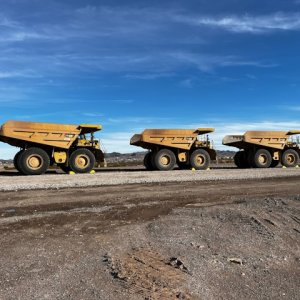Mining Faces New Challenges, Environmental Authorization Delays

STORY INLINE POST
In the past few years, the mining industry has had a significant impact in Mexico. It is recognized as a leading industry that has bolstered the national economy and attracted foreign investment. Certainly, mining projects have had a substantial financial impact on our country, as well as generating considerable improvement in labor and social matters for the Mexican population, which has allowed the creation of new jobs in the metallurgical industry and the adoption of social projects seeking the communal and housing welfare of communities that are located around these megaprojects.
Although the mining industry has made significant progress in our country, it has also been involved in legal, community and environmental controversies. It would be imprudent to say that the mining sector has not had any controversy related to these issues, since several matters have generated a great impact at the local, national and international levels. Historically, there has been a great deal of testimonials, mainly from Ejidal and indigenous communities, who have strongly opposed the mining industry’s activities. The main argument is that these activities tend to have an irreversible impact on the environment. This argument has strongly stigmatized the mining industry as a harmful sector for the community. In addition, and due to the international recognition of human rights, today, there is strong criticism against these megaprojects based on the argument that they are disproportionate to the impact they generate; in particular, the development of open-pit mining projects.
In the mining industry, there are two types of projects: open-pit mining and underground mining. The first — as its name suggests — is carried out directly on the surface through the execution of pits cut into the ground for ore extraction. The second is carried out below ground through the execution of tunnels, wells and drains, among others. Undoubtedly, open-pit mines are less complex than their underground counterparts since they only undergo drilling on the lots in search of ore exploitation areas.
Mining is distinguished by its development in three phases: exploration, exploitation and benefit. The exploration stage is the most important within any project, since the exploration viability of the project is defined based on the results provided by the geological studies, for which various drillings are usually carried out to extract soil samples and measure ore availability. Another important aspect within this stage are the environmental impact studies, which must be carried out to demonstrate the adverse effects that the project may cause to the environment, as well as the preventive measures that the mining company must carry out to mitigate the negative effects that the activities will generate. This study is generally known as an Environmental Impact Statement.
In Mexico, the competent authority to process and evaluate these studies is the Ministry of the Environment and Natural Resources (SEMARNAT), which is the main authority in charge of authorizing mining projects. For its approval, the projects must comply with all the environmental requirements established by the environmental legislation; otherwise, SEMARNAT is entitled to deny the Environmental Impact Statement and suspend the project's mining activities indefinitely.
In recent years, SEMARNAT has denied various requests for mining projects that involve open-pit extractive processes, consequently generating distrust among the authorities in this type of megaprojects. A notable example is the “Ixtaca” project of the Canadian company Almaden Minerals Ltd., which is located in the Sierra Norte in the state of Puebla. This project has been in the exploration stage since 2013. It has not been able to advance with its activities due to constant legal conflicts with the Tecoltemic Ejido, who suspended the project through an amparo/constitutional trial. It was not until last year that SEMARNAT definitively denied the project an Environmental Impact Statement due to the lack of essential requirements, which implies that as of today, the company is not allowed to carry out the project’s stages.
Another example would be the case of the “San José II” project of Fortuna Silver Mines company. It is located in San José del Progreso, state of Oaxaca. Just a month ago, SEMARNAT denied its request, determining that the execution of the project would violate the right to a healthy environment for adjacent communities. The company, through its subsidiary, is appealing the decision. According to the testimonies of the affected communities, they blame the company for systematically violating their human rights by generating a non-healthy environment for more than 10 years.
It can be inferred that in both cases the great participation of the communities that live near the projects generate a constant pressure on the federal authority to rule according to the interest of the communities, which results in the prohibition of this sort of the mining activity.
It is quite clear that the current recognition of human rights has prompted government agencies to listen to the voice of the Ejidal and indigenous communities, and, therefore, to strictly enforce mining and environmental regulations. The greatest challenge that the mining industry faces is not related with the permissibility of the authorities when approving or denying the applications of their projects or with the recognition of the rights of the Ejidal and indigenous communities, but with the current stigmatization that exists on mining activities in our country, which, unfortunately, is generally unfounded.
The foregoing should not be seen as an obstacle for mining companies but rather as a commitment to the communities and the environment, not only to comply with the applicable provisions but to carry out any action that allows the development of Ejidal or agrarian communities, always seeking a broad protection of their rights.
Today, companies must not only comply with the mining regulations but must also protect these sectors to overcome the stigmatizations that have historically marked the mining industry. Only in this way will the Mexican community recognize the true achievements the mining industry generates for our country.








 By Pablo Méndez | Managing Partner -
Thu, 08/19/2021 - 13:07
By Pablo Méndez | Managing Partner -
Thu, 08/19/2021 - 13:07















